I have the following piece of code with warning Expression is always true:
public class MyClass
{
private readonly IHubContext<NotificationHub> _hubContext;
public MyClass(
IHubContext<NotificationHub> hubContext)
{
_logHandler = logHandler;
_hubContext = hubContext;
}
foreach (string group in groups)
{
IClientProxy connection = _hubContext.Clients.User(group);
if (connection != null) // Expression is always true
{
}
}
}
I know that Resharper is very smart, however I cannot understand why it says Expression is always true as IClientProxy is reference type.
IClientProxy resides in Microsoft.AspNetCore.SignalR namespace.
Do you know why Resharper says Expression is always true?
This is how User is declared in public interface IHubClients<T>:
public interface IHubClients<T>
{
/// <summary>
/// Gets a <typeparamref name="T" /> that can be used to invoke
/// methods on all connections associated with the specified user.
/// </summary>
/// <param name="userId">The user ID.</param>
/// <returns>A client caller.</returns>
T User(string userId);
}
UPDATE:
If I add ? sign:
IClientProxy? connection = _hubContext.Clients.User(group);
Then I will get the following warning:
The annotation for nullable reference types should only be used in code within a '#nullable' annotations context.
UPDATE 1
Even if I use var:
var IClientProxy? connection = _hubContext.Clients.User(group);
if (connection != null)
then warning is arised Expression is always true:
